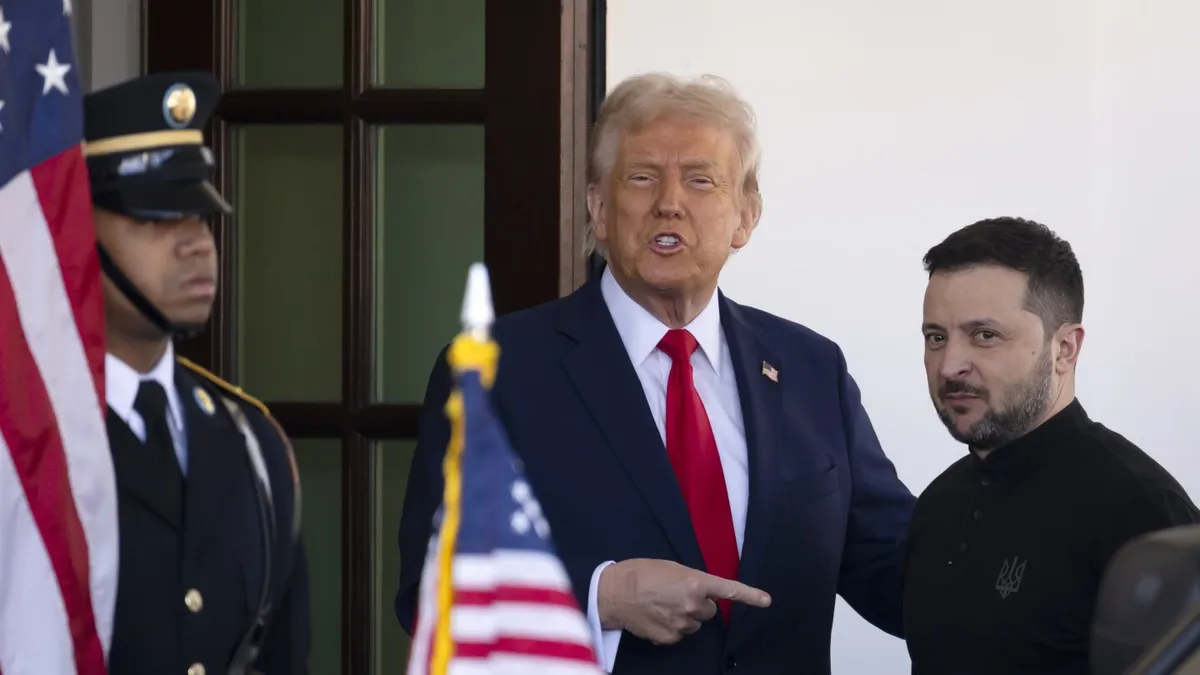
In a recent statement, President Donald Trump harshly criticized Ukrainian President Volodymyr Zelenskyy for his comments regarding the ongoing conflict in Ukraine, suggesting that the end of Russia’s war is still “very, very far away.” This criticism comes as Trump’s allies intensify the pressure on Zelenskyy to alter his approach toward the U.S. administration. Trump has prioritized a swift conclusion to the war, and recent developments indicate a significant strain in the relationship between the two leaders.
The relationship between Trump and Zelenskyy has deteriorated particularly following a contentious meeting at the White House. During this meeting, Trump and Vice President JD Vance reprimanded Zelenskyy for what they perceived as a lack of gratitude toward the U.S. for its support since the onset of the war, which began with Russian President Vladimir Putin’s invasion in February 2022.
Trump expressed his discontent through a post on his Truth Social platform, stating, “This is the worst statement that could have been made by Zelenskyy, and America will not put up with it for much longer!” His remarks were in response to Zelenskyy’s comments made while addressing reporters in London.
During his press conference, Zelenskyy attempted to maintain a positive outlook on the U.S.-Ukraine relationship, especially in light of the recent discussions in the Oval Office. He noted, “We are talking about the first steps today, and, therefore, until they are on paper, I would not like to talk about them in great detail.” However, he also acknowledged that a resolution to the conflict is still distant, stating, “An agreement to end the war is still very, very far away, and no one has started all these steps yet.”
Trump seized upon these remarks, implying that Zelenskyy’s outlook indicated a reluctance to pursue peace as long as he had support from America. “What are they thinking?” Trump questioned, emphasizing that Zelenskyy’s comments might undermine the perception of strength needed to deal with Russia.
In the wake of Trump’s criticisms, Zelenskyy utilized social media to respond indirectly. He underscored the importance of substantive diplomacy, stating, “It is very important that we try to make our diplomacy really substantive to end this war the soonest possible.” He expressed the urgency for peace, highlighting the devastation the war has brought to Ukrainian cities and the loss of lives.
The uncertainty surrounding Zelenskyy’s ability to lead Ukraine toward peace was echoed by Trump’s national security adviser, Mike Waltz. He questioned whether Zelenskyy is prepared to make the necessary compromises to end the fighting. “Is he ready, personally, politically, to move his country towards an end to the fighting?” Waltz asked during an appearance on Fox News.
Further complicating the situation, House Speaker Mike Johnson proclaimed that Zelenskyy must show gratitude and collaborate effectively for Ukraine to pursue a peace deal facilitated by the United States. Similarly, Senator Lindsey Graham, a prominent supporter of Ukraine, suggested that Zelenskyy either needs to resign or amend his approach to maintain U.S. support.
Experts like Angela Stent, a former national intelligence officer, have noted that Putin may not be inclined to end the war anytime soon, especially given the growing divisions between Trump and Zelenskyy, as well as between Europe and the U.S. regarding future strategies. Stent asserts that “He is not interested in ending the war” and believes that as time progresses, the West will become increasingly fragmented.
The ongoing tensions between Trump and Zelenskyy reflect a complex geopolitical landscape where the future of U.S. support for Ukraine remains uncertain, as both leaders navigate their respective challenges in pursuit of peace.